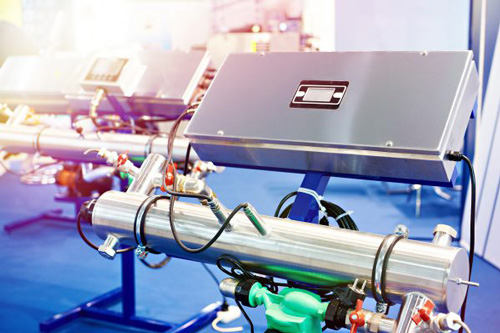Thanks to many advances in technology, there are numerous ways to treat your water and get rid of impurities and dangerous contaminants. One of the many different options is ultraviolet lights. Some water purifiers use only UV light, while others incorporate it as one step of a multi-faceted process. How do ultraviolet lights work for water treatment, and should you consider a system that incorporates them?
How Do Ultraviolet Lights Help Clean Water?
Ultraviolet lights can be used independently or as part of a system to help kill microorganisms that are invisible to the naked eye inside your water. When UV light at the right strength and intensity is shining on the water, it will penetrate the surface and harm the bacteria and viruses. This stops them from being able to replicate and disinfects the water without making it have a strange taste, color, or smell. Ultraviolet lights are a popular option for homeowners and business owners who want to clean their water supply without adding chemicals.
When you are choosing a UV light system to help treat your water, you must choose one that is appropriate for the amount of water being treated. The strength of UV light must be strong enough to kill the microorganisms inside the water.
What Can Be Removed From Water With Ultraviolet Lights?
It’s important to know that ultraviolet lights will harm bacteria and other living organisms present in your water and stop them from replicating, but they will not zap them and remove them entirely. UV light will not be able to get rid of poor odor, an aftertaste, or visible particles in the water. Some of the things that ultraviolet lights can get rid of include:
- Streptococcus
- Giardia
- Salmonella
- Algae
- Fungi
- Cryptosporidium
- Dysentery
- Tuberculosis
- Hepatitis B
- coli
- Some types of viruses
Because it cannot get rid of large particles or issues with the smell or taste, ultraviolet lights are often used as part of or in addition to other water treatment systems. Some of the most common systems that incorporate ultraviolet lights include bag filtration, cooling tower filtration, and media filtration.

What Are the Components of a UV Treatment System?
In general, most systems that use ultraviolet lights to treat water have a couple of pre-filters to remove large debris and UV lights placed inside of a bulb sleeve. The bulb sleeve is placed inside of a protective tube so that the light doesn’t make direct contact with the water. Water will then move through the tube to be exposed to the wavelengths.
Why Are Ultraviolet Lights Great for Water Treatment?
There are many different reasons why people choose water treatment and water filtration systems that incorporate ultraviolet lights. First, ultraviolet lights are very effective at killing many different types of dangerous bacteria and viruses. By getting rid of things like Salmonella and E. coli, you can feel safer when you take a drink.
Some of the additional reasons why ultraviolet lights are effective for water treatment and a popular choice include:
- Ultraviolet lights do not change the taste or smell of the water, so if you do like the taste and smell of your water and only need to get rid of bacteria, they are a great choice
- UV lights will not add any chemicals to the water in order to kill pathogens
- Compared with other types of water treatment, UV water filtration has less maintenance and lower operating costs
- UV lights are more energy efficient and have a lower carbon footprint than other types of water filtration
- UV lights can process water as you use it, which eliminates the need for large storage tanks of treated water
- UV light systems are easy to install and use
- Depending on the system that you choose, your ultraviolet lights can disinfect all of the water in your home
Are There Any Downsides of UV Water Treatment?
Ultraviolet lights are safe to use to treat water, and they are very effective at what they do. However, it’s important to understand that there are a few drawbacks. First off, UV light systems will not be able to get rid of some other common water contaminants that lead to poor taste, a foul smell, or visible sediment in the water. If you have heavily polluted water, ultraviolet lights are best used as part of a bigger system.
Additionally, ultraviolet water systems do need an electricity source in order to operate. That means that, if your power goes out for an extended period of time, you will not be able to filter water during that period and you will not have a large tank of pre-filtered water available.
Learn More About Hard Water, Copper, and Minerals with Atlantic Blue Water Center
We provide water treatment and water softening solutions for homeowners that want a cleaner water supply and water that is free from hazardous carcinogens that can contribute to increased cancer risk. We’re also focused on providing additional education on water treatment, water quality, and issues associated with water contaminants. Call us at (410) 751-9200 to schedule your in-home water testing appointment today.
